Interview: Playwright Jessica Goldberg's Excited to Deliver Her Latest BABE
Jessica Goldberg reunites with The Echo Theatre Company for the world premiere of her Babe opening September 17th
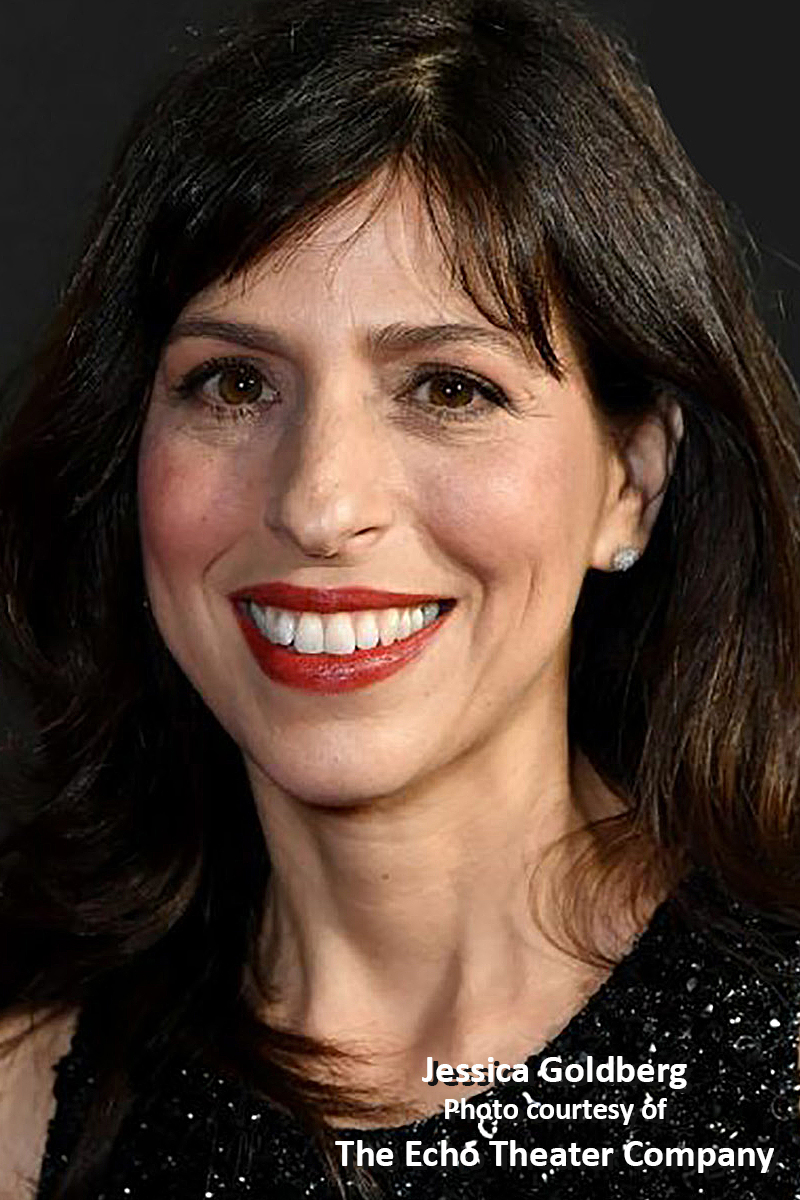
Playwright, screenwriter and television writer Jessica Goldberg reunites with The Echo Theatre Company for the world premiere of her Babe opening September 17, 2022. Chris Fields directs the cast of Wylie Anderson, Julie Dretzin and Sal Viscuso. Jessica was most gracious in discussing Babe, her long relationship with Echo and her productive writing process.
Thank you for taking the time for this interview, Jessica!
How long has the gestation period for Babe been up to this world premiere?
I started writing the play in 2019. The Echo did a reading of the first draft on Zoom in 2021, and then we were able to do a live reading in 2022. So it's been about a three-year process.
What cosmic forces brought you to work with The Echo Theatre Company?
The way Chris Fields at The Echo tells it, many, many years ago he reached out to Chris Durang (who was running the Juilliard Program with Marsha Norman) for new plays. Durang sent him a play by a little-known playwright at the time named David Lindsey-Abaire, and also my play Refuge. Thus began a long collaboration between me and The Echo Theater Company.
The theater has become an artistic home close to home; when I have a new play (which is rarely), I call Chris and beg him to bring together some of the wonderful company members at the theater to allow me to hear the play.
When will your script for Babe be set in stone? After the first workshop? Post-dress rehearsal? When curtain calls are over?
Is anything ever set in stone? I suppose a published version would make the words more definitive, but everything is reworkable, until you've just have enough of it.
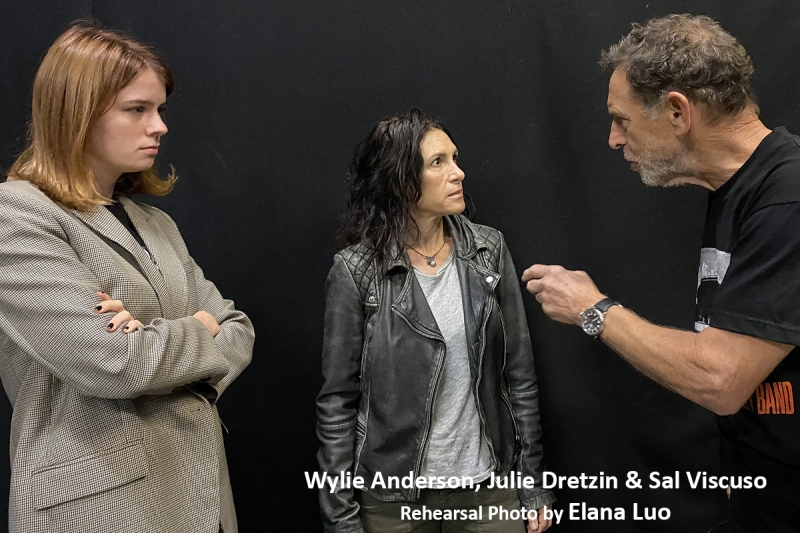 How hands-on are you with your premieres?
How hands-on are you with your premieres?
I love the process of collaboration, the readings and rehearsals. It's when the play opens that I want to hide. I try to be quite hands-on with a premiere. Unfortunately I just got COVID for the first time, so I'm forced to be away from rehearsal for a while.
Have you worked with any of Babe's cast or creatives before?
Chris Fields, who is directing, and I have a long relationship. He directed my play Body Politic years ago at the theater. I knew Julie Dretzin, one of the actors, from growing up around the theater in New York; Sal Viscuso and Wylie Anderson are new collaborators, as well as the designers. But as with many collaborators at The Echo, new collaborators become life-long collaborators.
What would your three-line pitch for Babe be?
Ah! The hardest question. Babe is about Abby, who has worked as the right-hand woman to a powerful man in the toxic world of A&R (music) since the '90s. When a young millennial with a fresh point of view, Kaitlyn, is hired on the job, Abby is forced to rethink the power structures she participated in, and the friendships she thought she had. Babe is also just a play about rock-n-roll, and what music means to us through generations. Okay, well, that was more than three-lines, but I tried.
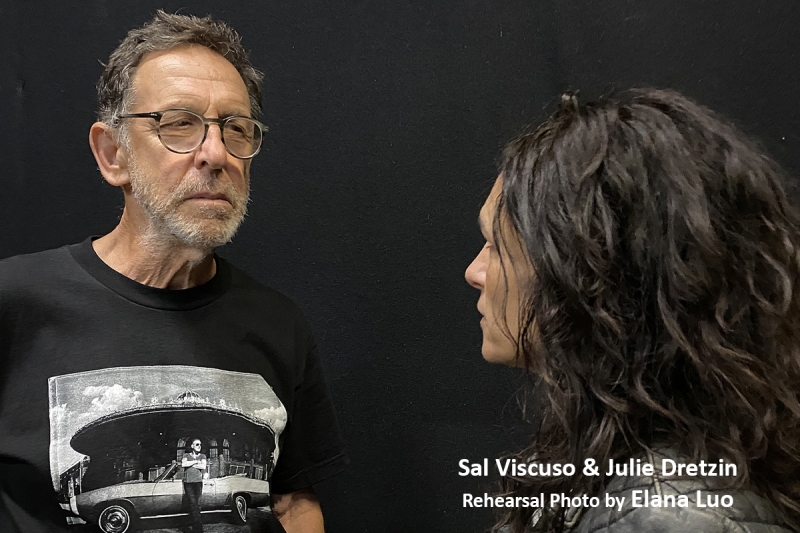 Which of your three characters would you identify most with? Or are there elements of yourself in all three characters?
Which of your three characters would you identify most with? Or are there elements of yourself in all three characters?
Oh, definitely Abby. She's a middle-aged woman struggling to reconcile the past and stay present and hip to the future. She's looking around at the new generation of women and wondering how these girls got to be so brave. And she's the one fighting against the inevitable next stage of life: invisibility, irrelevance... cancer.
You grew up in Woodstock, site of the legendary 1969 Woodstock Music and Art Fair. Was music from that festival still prevalent when you were old enough to hang out at your parents' record stores?
1969 never left Woodstock. I grew up on Dylan and The Band. Lee Von Helm actually lived down the street from my childhood home. Every summer the town swarmed with tourists; they'd come into my parents record store looking for the concert and we'd have to send them 60 miles south to Yasgur's Farm, where the concert actually took place. You see, the town wouldn't allow the concert to happen in Woodstock, but it was too late for the organizers to change the name, so Woodstock has forever become identified with that concert.
When you were studying at NYU's Dramatic Writing Program and Juilliard, what writing discipline did you envision yourself in - TV? Film? Theatre?
When I was studying in NY, everything was theater! All I wanted to do was write for the stage. But, as life took various turns, I was deeply grateful that film and TV wanted to hear from me. Those other mediums allowed me to develop different aspects of my craft.
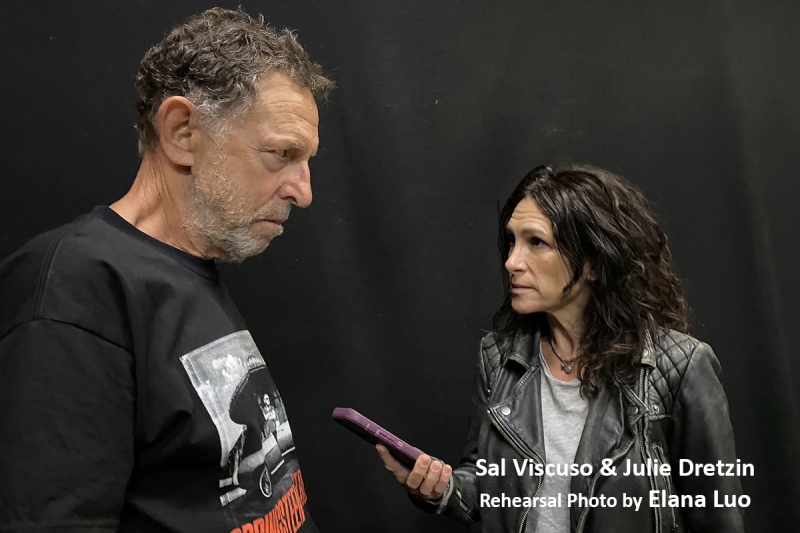 You received a number of fellowship and stipends in your early career. Any particular honor still stands above the rest?
You received a number of fellowship and stipends in your early career. Any particular honor still stands above the rest?
The Susan Smith Blackburn! It's a prize given to a play by a woman in the English language. The list of honorees is significant, and it's a great honor to be among them. The award made me feel seen by my community, and even more, it made me see myself and understand my potential as a writer in a different way. The prize comes with a stipend, but even more valuable, a brilliant DeKooning print. I have it hanging prominently in my office. If we ever Zoom, you will see it behind my right shoulder.
If financial compensation were not a factor, which entertainment field would you prefer to exercise your writing talents - TV? Film? Theatre?
At this point, because I have been lucky enough to work in TV and film and love those forms of storytelling, I don't think about the form I prefer. Rather, if I have a story I want to tell, I think: what form does this story belong in? Is it a movie? A play? A TV show? It's nice to have multiple ways to tell a story. I've even been taking a short story class, so who knows? Maybe there's a novel down the road.
What would you tell a writing student the differences between writing for TV, film and theatre are?
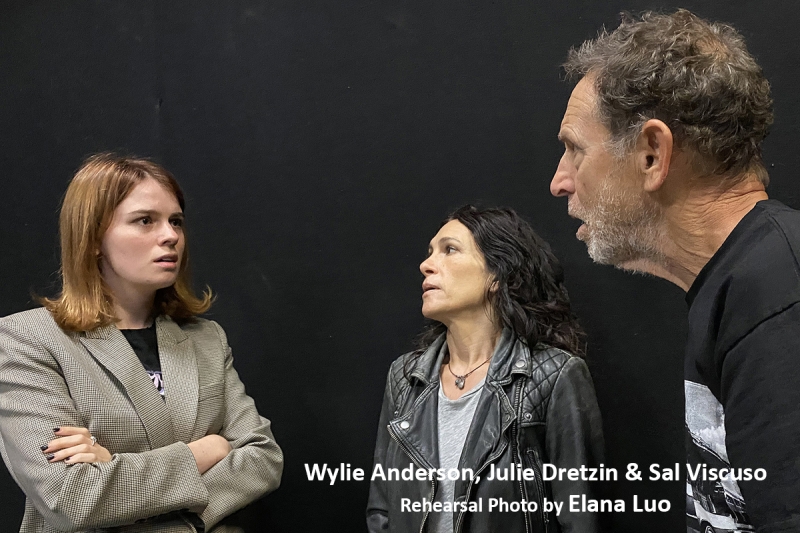 Perhaps easier to start with their similarities: character, dialogue and story. A film wants to tell a finished story in 90/100 minutes; a TV show is a long-form story that often relies more on character arcs than plot (but plot can be important too). Theater is its own thing, and why a story wants to be told on stage has a lot to do with the person writing it and why they feel the stage is where their story belongs. Whenever I try to ascribe rules, I think of an exception to the rule... The best advice I can give students is to know the forms well, read screenplays and pilots and plays, and read the bibles for tv shows. Think about the story you want to tell, and what form would best serve it.
Perhaps easier to start with their similarities: character, dialogue and story. A film wants to tell a finished story in 90/100 minutes; a TV show is a long-form story that often relies more on character arcs than plot (but plot can be important too). Theater is its own thing, and why a story wants to be told on stage has a lot to do with the person writing it and why they feel the stage is where their story belongs. Whenever I try to ascribe rules, I think of an exception to the rule... The best advice I can give students is to know the forms well, read screenplays and pilots and plays, and read the bibles for tv shows. Think about the story you want to tell, and what form would best serve it.
What's in the near future for Jessica Goldberg?
A negative COVID test. I hope.
Thank you again, Jessica! I look forward to meeting your Babe.
For tickets to the live performances of Babe through October 24, 2022; click on the button below:
Comments

Videos

